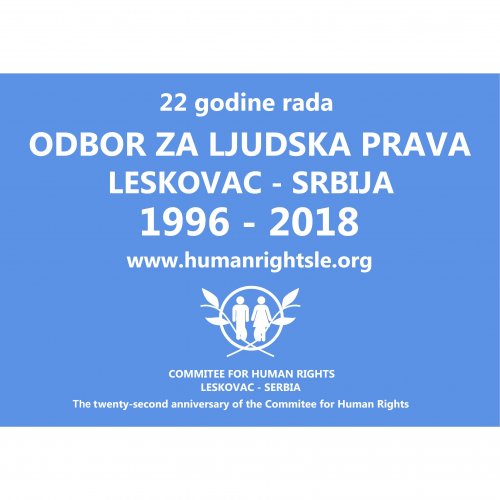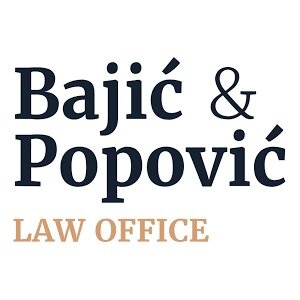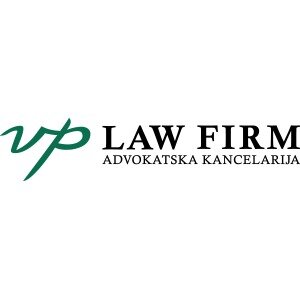Best Faith-Based Law Lawyers in Serbia
Share your needs with us, get contacted by law firms.
Free. Takes 2 min.
Or refine your search by selecting a city:
List of the best lawyers in Serbia
About Faith-Based Law in Serbia
Faith-Based Law in Serbia encompasses the legal norms and practices that relate to religious beliefs, practices, and institutions. The legal framework is defined by both national laws and international agreements to which Serbia is a signatory. The Constitution of Serbia provides for the freedom of religion, ensuring separation between church and state, while also recognizing religious communities as important societal institutions. Religious communities are defined as non-profit entities, and they have the right to independently regulate and organize their governance and practices according to their beliefs.
Why You May Need a Lawyer
Individuals, religious organizations, or entities may seek legal guidance regarding Faith-Based Law in Serbia in various situations, such as:
- Establishing or registering a new religious organization.
- Resolving disputes within or between religious communities.
- Matters involving religious property and heritage management.
- Navigating issues related to employment within religious communities.
- Legal embedding of religious teachings or practices in the educational system.
- Fulfilling and managing financial obligations and tax exemptions for religious entities.
- Protecting religious freedoms while adhering to secular law requirements.
Local Laws Overview
Key aspects of local laws relevant to Faith-Based Law in Serbia include:
- Freedom of Religion: Guaranteed by the constitution, this law allows individuals and communities to practice and express their religion freely.
- Registration of Religious Organizations: Religious communities must register with the Ministry of Justice and Public Administration to gain legal status.
- Religious Education: Public schools may provide religious education, which is optional and subject to parental or student choice.
- Property and Financial Regulations: Laws pertain to the acquisition, management, and financial reporting of religious entities.
- Labor Law: Specific provisions address employment practices within religious organizations.
Frequently Asked Questions
What is the process for registering a religious organization in Serbia?
Registration requires submitting an application to the Ministry of Justice and Public Administration, along with necessary documentation such as founding acts and statutes.
Can a religious organization own property in Serbia?
Yes, religious organizations can acquire and own property, provided they adhere to legal regulations governing property acquisition and management.
Are there tax exemptions for religious communities in Serbia?
Registered religious organizations are often granted tax exemptions, especially concerning donations and property used for religious activities.
How are disputes within religious communities resolved?
Many communities have internal mechanisms for resolving disputes. For legal interventions, cases may be brought before civil courts.
Is religious education mandatory in Serbian schools?
No, religious education is optional in Serbia's public schools, and students can choose whether to attend these classes.
What are the duties of a religious organization regarding financial transparency?
Religious entities are required to adhere to financial transparency regulations, including maintaining accounts and reporting financial activities.
How does Serbian law treat religious freedom and expression?
Religious freedom is constitutionally protected, allowing individuals and organizations to freely practice and express their religions within the legal framework.
Are foreign religious organizations treated differently in Serbia?
While foreign entities can register and operate in Serbia, they are subject to the same laws and regulations as local entities.
Can religious beliefs influence employment law within faith-based organizations?
Employment within religious organizations might be influenced by religious beliefs as long as it complies with national labor laws.
What recourse is available if religious freedom is violated in Serbia?
Victims of religious freedom violations can seek recourse through the legal system and may also contact human rights organizations.
Additional Resources
For those seeking further information or assistance, consider the following resources:
- Ministry of Justice, Republic of Serbia
- The Council for Religious Freedom
- Humanitarian Law Center
- Local Bar Associations
- Organizations focusing on human rights and religious freedoms
Next Steps
If you believe you need legal assistance concerning Faith-Based Law in Serbia, consider taking the following steps:
- Identify the specific area of concern or legal issue.
- Gather all relevant documents and information.
- Consult with a lawyer specializing in Faith-Based Law or related fields.
- Consider reaching out to organizations that offer legal aid or advice.
- Maintain a record of all communications and actions taken for future reference.
Seeking professional legal advice ensures that you navigate the complexities of Faith-Based Law effectively while safeguarding your rights and interests.
Lawzana helps you find the best lawyers and law firms in Serbia through a curated and pre-screened list of qualified legal professionals. Our platform offers rankings and detailed profiles of attorneys and law firms, allowing you to compare based on practice areas, including Faith-Based Law, experience, and client feedback.
Each profile includes a description of the firm's areas of practice, client reviews, team members and partners, year of establishment, spoken languages, office locations, contact information, social media presence, and any published articles or resources. Most firms on our platform speak English and are experienced in both local and international legal matters.
Get a quote from top-rated law firms in Serbia — quickly, securely, and without unnecessary hassle.
Disclaimer:
The information provided on this page is for general informational purposes only and does not constitute legal advice. While we strive to ensure the accuracy and relevance of the content, legal information may change over time, and interpretations of the law can vary. You should always consult with a qualified legal professional for advice specific to your situation.
We disclaim all liability for actions taken or not taken based on the content of this page. If you believe any information is incorrect or outdated, please contact us, and we will review and update it where appropriate.
Browse faith-based law law firms by city in Serbia
Refine your search by selecting a city.















